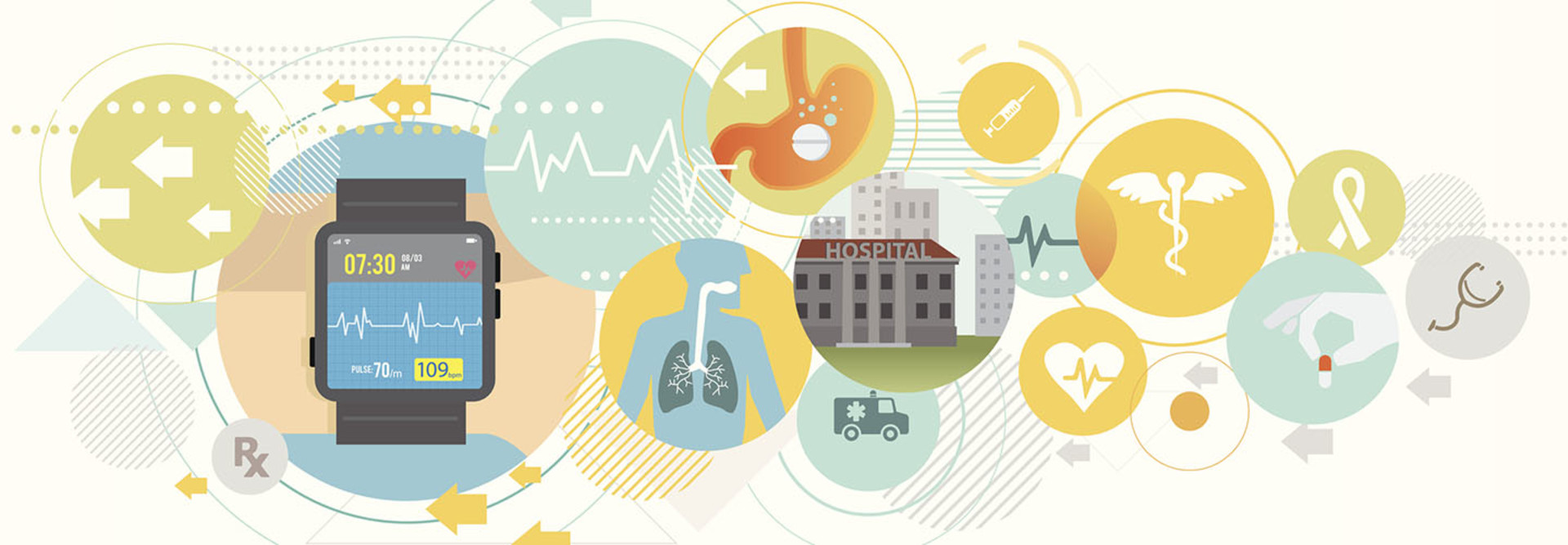All in the Wrist: Biometric Trackers Give Doctors a Jump on Patient Care
As a cardiologist, electrophysiologist and well-known specialist in the treatment of arrhythmias, Dr. Gregory Marcus, of UCSF Medical Center in San Francisco, has seen countless patients with atrial fibrillation (AF).
“It’s extremely common,” he says of the heart condition, “and importantly, it’s also a leading cause of stroke.”
The good news, Marcus says, is that doctors can prescribe certain blood-thinning medications that greatly reduce stroke risk in such patients. The bad news is that a stroke can be the first sign that something’s wrong.
“The challenge has been to find an effective way to identify these people before they have a stroke. If someone doesn’t feel their atrial fibrillation,” which might present as a “fluttering” in the chest, says Marcus, “how can we know they’re at risk in the first place?”
That’s a question Marcus tried to tackle in a recent study he led to see if a smartwatch might do the job. Encouraged by surveys showing the growing popularity of wearable biometric trackers, he and his team paired the heart rate sensor from an Apple Watch with an artificial intelligence–based algorithm they “trained” to detect AF.
“So, if you’re wearing this watch, can we use the data that it collects to automatically identify atrial fibrillation?” Marcus asks. According to the study results, they can.
“What we found, I think, is highly encouraging: that there’s tremendous potential for using a device like this to solve a clearly defined, unmet need in public health,” he says.
SIGN UP: Get more news from the HealthTech newsletter in your inbox every two weeks
Wearables Sense Changes in Patient Health
Marcus isn’t the only medical provider to see a use for biometric trackers in patient care. In Houston, Texas, for example, Clear Lake Rheumatology’s Dr. Prashanth Sunkureddi is using Garmin vivofit 2 activity trackers to monitor sleep and movement among his patients with immunologic disorders.
Just south of Boston, at a hospital in Brockton, clinicians with Signature Medical have developed similar devices to track heart rates and sleep patterns in patients after discharge. And at Carolinas HealthCare System in North and South Carolina, they’re using Fitbit wristbands in conjunction with a special app to keep tabs on the activity of patients with chronic heart failure.
“These organizations have recognized the opportunity that wearables give them to connect with their patients no matter where they are,” says Harry Wang, a mobility and apps analyst with the market research firm Parks Associates.
Historically, Wang notes, physicians tended to resist bringing consumer-grade devices to the healthcare space. But biometric trackers are making inroads relatively fast, primarily because of the data they can collect.
“Doctors are using many of these devices themselves,” Wang says, “and they can see their potential for improving people’s lives. And the device manufacturers are thinking about this too — they see this as an untapped market.”
Patrick Lyon, senior director of strategy and marketing with Medtronic Care Management Services, which provides healthcare organizations with remote patient-monitoring platforms that integrate data from devices like the Garmin vivofit, agrees with Wang on all accounts.
“Our customers see integrated biometrics as key to helping their clinicians and care coordinators get a full understanding of their patients’ health,” says Lyon. “They want this information because it can help them make decisions, and it helps them provide care more effectively and efficiently.”
As healthcare organizations warm up to biometric monitoring, and as new sensor-packed devices (like the Samsung S-Patch) come on the market, where does that leave Marcus?
He’ll continue his research, he says, buoyed by the hope that it won’t be long before it’s common to flag people with atrial fibrillation well before they suffer a stroke.
“So many people are using these amazing sensors anyway,” he says. “Why shouldn’t we be able to use them to actually influence their health?”









